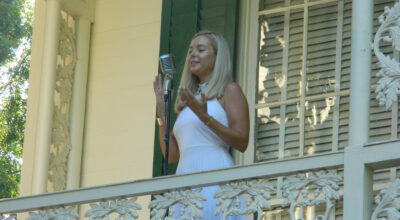Commentary: A conservative view of our natural capital
Published 12:00 am Thursday, December 28, 2006
By Dyke Messinger
For the Salisbury Post
As a conservative, I believe that we should live within our means, both fiscally and environmentally. If we spend our natural capital — our clean air and water, our forests and wetlands, our finite energy sources — we will create problems that will be costly and extremely difficult to solve.
The Catawba College Center for the Environment has created a Sustainable Communities Leadership Institute to help us meet our needs today without compromising future generations’ ability to meet their needs as well. It is designed to help current and emerging leaders gain the knowledge and skills they need to offer constructive guidance in spending our natural capital in a fiscally and environmentally sound way. It is also designed to bring people from diverse perspectives together in an atmosphere of trust and respect.
As chair of the Center’s Advisory Council, I have been involved in the institute’s formation from the very beginning. That is why I was troubled to see such a misrepresentation of the Institute in Rodney Whedbee’s letter to the editor on Dec. 14. He clearly does not know what the institute is or how it proposes to build vibrant communities where the health of our citizens, the economy and the environment are balanced and where informed decision-making can yield a high quality of life for everyone.
I have heard other conservatives liken a healthy environment to a family trust fund: It is an asset that will pay great dividends in health, prosperity and quality of life to our heirs — if we don’t spend it all during our lifetimes.
It is conservative to implement energy-saving measures, thereby reducing the amount of electricity that coal-fired power plants have to produce, which, in turn, reduces the amount of pollution that enters the air. This may be as simple as making sure your home is well insulated or purchasing water- and energy-saving appliances. It could mean arranging an energy audit of your business to determine the ways you can save both energy and money.
I think we are morally obligated to leave our children and grandchildren a world that is better than — or at least as good as — the world we enjoy today. If we pollute our air and streams, if we cut down our trees and cover all our natural lands what kind of legacy will we leave?
The institute will provide public education as well as focused training for a number of participants each year. Next spring the center will offer three conferences that address the topics of air quality, recycling and energy efficiency. They will all be open to the public. The purpose is not to shove pre-conceived answers down people’s unwilling throats, but to aid citizens in finding solutions that work for their communities. The purpose of the institute is to deepen democracy rather than leave it in the hands of small, but vocal, special interests; be they from the “left” or the “right”.
We need to learn about how we can build — not deplete — the trust fund that is our environment. We need new understanding and new strategies to ensure a high quality of life for ourselves, our children and our grandchildren. The Sustainable Communities Leadership Institute can help us reach these fiscally and environmentally sound goals in a way that brings everyone to the table in an atmosphere of trust and respect.
* * *
Dyke Messinger is the president and CEO of Power Curbers Inc.


